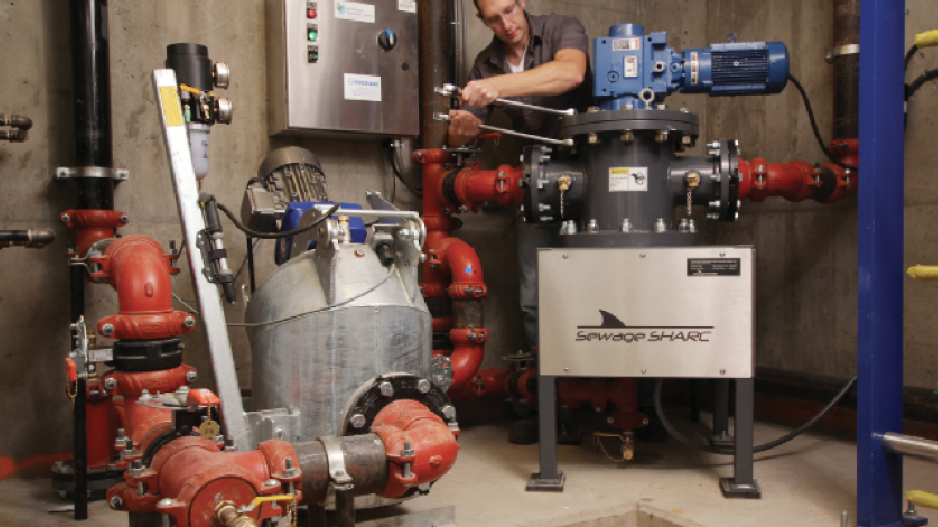When Vancouver launched its Greenest City 2020 Action Plan in 2011, city officials had good reason to think they had a decent head start. After all, roughly 96% of the electricity produced in B.C. already comes from renewable hydro and wind power.
But now cities like San Francisco, San Diego and San Jose are breathing down Vancouver’s neck with their own aggressive plans to become the first city in North America to meet 100% of its energy needs with renewables. Several European cities are in a similar race.
City council voted to accelerate Vancouver’s own plans and asked staff to report back in the fall with new targets for getting Vancouver to the 100% fossil-fuel-free point.
Only 32% of Vancouver’s energy needs are being met through renewable energy. Getting to 100% by 2020 would be virtually impossible, as long as natural gas remains so cheap. The cost of heating a home with natural gas in B.C. is now about a third of what it costs to heat a home with electricity, according to FortisBC, so the city might have a hard time convincing homeowners to make the switch to zero-carbon energy.
“A lot of it is outside of our jurisdiction,” conceded deputy city manager Sadhu Johnston. “We don’t manage or regulate fuel standards; we don’t regulate vehicles; we don’t regulate heating fuel.”
So what if some other city beats Vancouver to the punch to become the world’s greenest city? Win or lose, the push by cities to move off of fossil fuels is a global race, and B.C.’s clean-energy sector stands to benefit just by participating, said Jonathan Rhone, chairman of the BC Cleantech CEO Alliance.
“Cities are huge markets for clean technologies and solutions,” Rhone said. “British Columbia has one of the most productive clean-tech clusters in the world. What the City of Vancouver has done is they’ve put themselves at the forefront of this massive disruption we’re seeing in global energy markets.”
The most powerful tool cities have is planning and zoning, and one way to gradually shift buildings off of natural gas is through localized district energy systems. Several have already been developed in Vancouver and the Lower Mainland.
These systems can use a variety of renewable energy technologies, including solar power, ground-source heat (geoexchange), waste-water heat recovery and biogas.
“I think that what you are going to see is that in the new builds and the new development, district energy is going to be taking on a bigger role in Vancouver,” said Shauna Sylvester, director for the Centre for Dialogue at Simon Fraser University. “I think you are also going to see many more residences moving to forms of solar and other innovative forms.”
One significant advantage that Vancouver has in the renewable-energy race is that it punches well above its weight when it comes to the number of companies here involved in the clean-energy space.
Vancouver-based Corix, for example, builds district energy, geoexchange and hybrid energy systems, and has operations throughout North America.
Fenix Energy specializes in retrofitting existing buildings with geoexchange systems that use ground-source heat for cooling and heating buildings. International Wastewater Systems has developed a system that extracts waste heat from a building’s water before it is flushed into the sewer system, and which can provide roughly 75% of a building’s heating and cooling needs. Nexterra Systems Corp. specializes in building waste-to-energy plants, like the one at the University of British Columbia that generates heat and electricity. And MSR Innovations builds solar roofs using roofing tiles that function as photovoltaic panels.
Rhone said he would like to see the city working more closely with the local clean-energy sector to develop a “full suite” of clean-energy production.
Systems developed here could find markets in other cities that are also striving to reach their 100%-renewable-energy goals, he said.
“Some of those technologies exist today, and some of them need to be developed,” Rhone said. “If we can work with the city and other cities to develop these technologies to fit this demand, this will create jobs and will attract investment right here at home.”
In addition to promoting B.C. clean-energy companies to the world, moving closer to its greenest city goal could also work to attract certain businesses to Vancouver, Johnston said.
“For instance, a high electricity-based business that wants to be low carbon – like a data centre – this is an ideal place to be,” he said.
Even FortisBC, whose primary business is as a natural gas utility, has been jumping on the renewable bandwagon.
Its alternative energy services division has built several district energy systems in B.C. for new residential developments using geoexchange.
For a premium, FortisBC also offers customers biogas, which it gets from two landfills, a dairy farm and an agricultural waste facility.
Since it began offering it, FortisBC has sold 25,000 gigajoules’ worth of biogas – the equivalent of taking 2,500 cars off the road, said FortisBC spokeswoman Grace Pickell.
Asked if FortisBC could supply all of Vancouver with 100% biogas, Pickell said it would depend on how many customers opted into the biogas option.
“The more customers that sign up, the more suppliers we are able to bring online,” she said.




